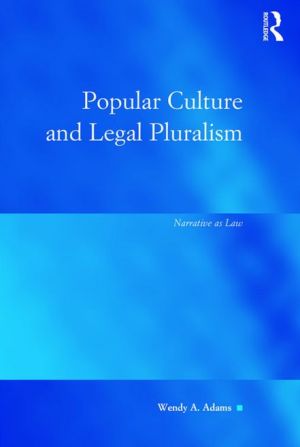
Drawing upon theories of critical legal pluralism and psychological theories of narrative identity, this book argues for an understanding of popular culture as legal authority, unmediated by translation into state law. In narrating our identities, we draw upon collective cultural narratives, and our narrative/nomos obligational selves become the nexus for law and popular culture as mutually constitutive discourse.
The author demonstrates the efficacy and desirability of applying a pluralist legal analysis to examine a much broader scope of subject matter than is possible through the restricted perspective of state law alone. The study considers whether presumptively illegal acts might actually be instances of a re-imagined, alternative legality, and the concomitant implications. As an illustrative example, works of critical dystopia and the beliefs and behaviours of eco/animal-terrorists can be understood as shared narrative and normative commitments that constitute law just as fully as does the state when it legislates and adjudicates.
This book will be of great interest to academics and scholars of law and popular culture, as well as those involved in interdisciplinary work in legal pluralism.